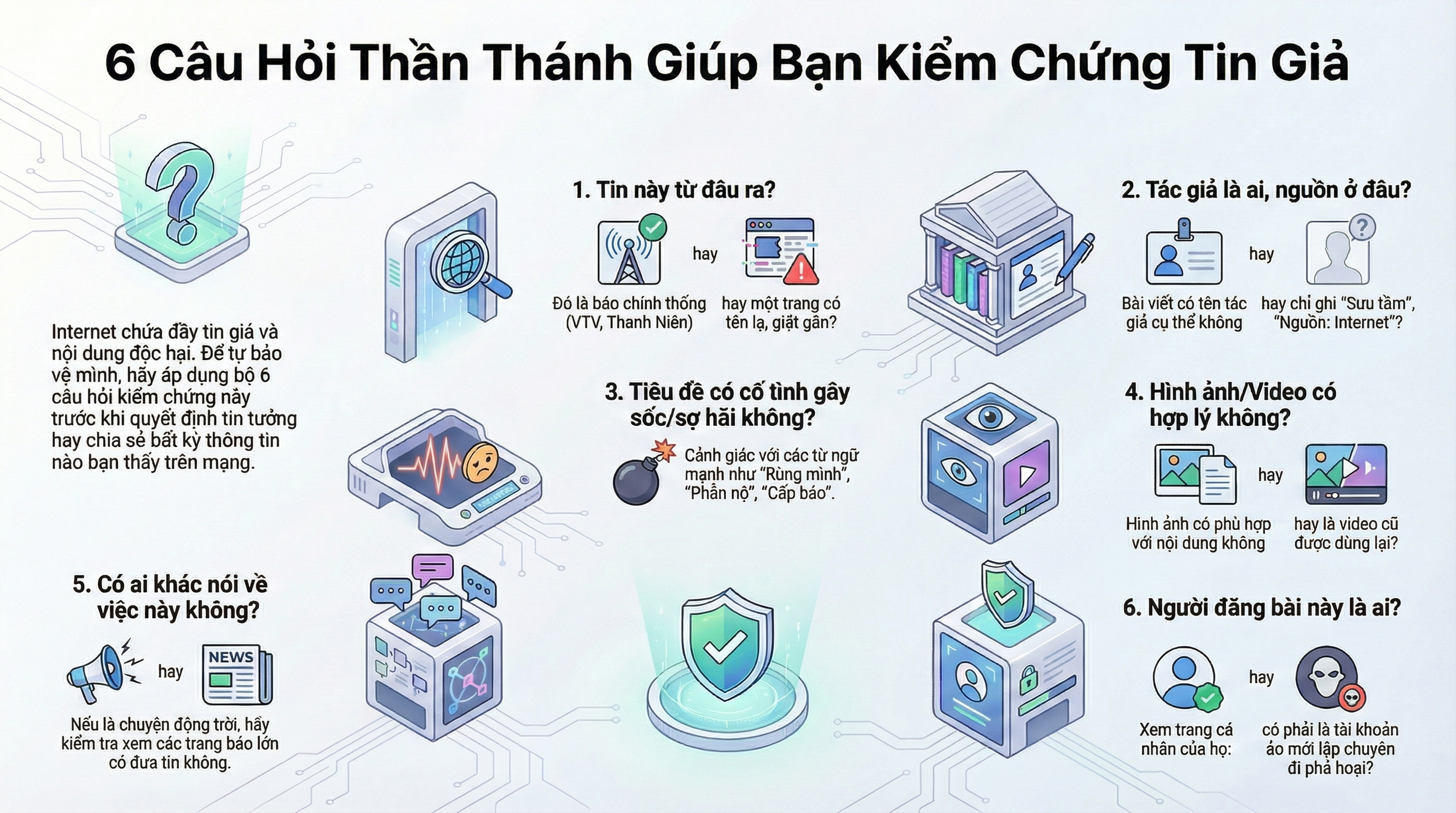
Alarming situation
From March to July 2025, the authorities recorded 18 cases of "online kidnapping" fraud are officially reported, not to mention unreported cases. These figures reflect a worrying reality: cybercriminals are increasingly bold with sophisticated tricks, causing serious financial losses (such as cases in Ho Chi Minh City of nearly 3 billion VND, Hanoi of 370 million VND) and leaving many deep psychological traumas for victims.
Faced with this serious situation, One World Magazine organized an in-depth discussion with the participation of leading experts:
- Lieutenant Colonel, Dr. Dao Trung Hieu – Criminologist, Ministry of Public Security
- Dr. Trinh Hoa Binh – Sociologist
- Mr. Do Thai Dang – Policy analyst
- Mr. Ngo Minh Hieu (Hieu PC) – Cyber security expert, Anti-Fraud representative

The alarming shift of cybercrime
According to the analysis of Lieutenant Colonel Dao Trung Hieu, the shift from street crime to cyber crime is an inevitable and worrying trend. Unlike traditional kidnapping - which leaves many traces at the scene and is often solved quickly (within 24 hours), the form of "online kidnapping" allows criminals to only need a computer or phone to carry out remotely, hiding safely.
Dangerous imbalance:
- Risk of arrest: EXTREMELY LOW
- Probability of success: EXTREMELY HIGH
- Implementation costs: VERY LOW
- Profit earned: HUGE
It is this imbalance that has turned “online kidnapping” into an attractive form of crime for criminals, and at the same time a big challenge for authorities.
increasingly sophisticated tricks
Applying AI to fraud
According to analysis from Anti-Fraud representatives: "Cybercriminals are currently applying AI a lot, faking faces, authorities, making phone calls, even just a photo they have turned into a video with a very tight psychological manipulation scenario."
AI tools used by criminals:
More worryingly, according to statistics, these AI tools are very cheap and easily accessible, causing the number of subjects using AI to commit crimes to skyrocket.
Exploiting the “black market” of personal data
Lieutenant Colonel Dao Trung Hieu explained: “The black market for buying and selling data is very developed, from banking information, airline tickets, electricity… Criminals have obtained certain information about their prey before attacking.”
Source of leaked data:
Expert Hieu PC warns: “Young people are almost always carefree in sharing pictures, home addresses, and school names on social networks. The subjects will grasp the list of friends, relatives, and relationships and find out whether this subject is easy to deceive or not, whether the family is well-off or not to target and attack.”
Typical “online kidnapping” scam scenario
Why is crime still rampant?
According to analysis from experts, criminals have a place to act because they exploit human psychological weaknesses: Greed, fear and ignorance. For this type of "online kidnapping", there are 3 big gaps that are being thoroughly exploited by the subjects, including:
- Exploiting fear
- Fear of power (police, authorities) – reflexive obedience from childhood
- Fear of being fined, arrested, affecting family
- Fear of sensitive images being spread
- Lack of digital skills and cybersecurity awareness
- Don't know how to verify the information
- Lack of critical thinking and questioning skills
- Do not understand the working process of the authorities
- Not aware of the dangers of sharing personal information
- The distance between parents and children
- Busy parents, subjective, lack of communication skills
- I dare not share for fear of being scolded and accused.
- Weak ability to say “no”, easy to manipulate
In particular, scammers do not operate alone, but there are also "underground communities" that train criminals. On Telegram, there are many Vietnamese groups that join to learn attack methods and apply them. They share tools and hacking techniques, teach each other how to commit crimes and respond to authorities, and even show off their "achievements".
Lieutenant Colonel Dao Trung Hieu said he arrested a group of 9th and 10th graders who dropped out of school but were able to hack the technology system: “They have underground community groups that teach each other to commit crimes. Whatever the world has, Vietnam has.”
Besides, tracing criminals is difficult when encountering 5 major barriers:
Global trends: Many countries call this "online blackmail", many teenagers have committed suicide because they could not bear the psychological pressure.
Preventive measures
The key to avoiding today's scams is summarized in three important steps:
- SLOW DOWN – Don't be so quick to trust
- Do not act immediately on the request
- Keep calm in every situation
- Remember that authorities NEVER ask for money over the phone.
- VERIFICATION – Verify information
- Ask for full name, unit, hotline number
- Search for information on the official website
- Call back the public phone number of the relevant agency or organization to verify the information
- Ask detailed questions to test
- SHARE – Talk to experienced people
- Talk to your parents, teachers, friends or people with relevant expertise and experience.
- Contact the authorities
- Report to trace and handle the subject immediately when there are signs of fraud.
Nowadays, it is impossible to completely eliminate online crime, the only way is to the whole people build a vigilant life as a social vaccine. To create a “social vaccine”, people can refer to the following recommendations:
⚠️ NEVER:
✅ ALWAYS:
ESPECIALLY, CHECK BEFORE YOU GET SCAMMED!



